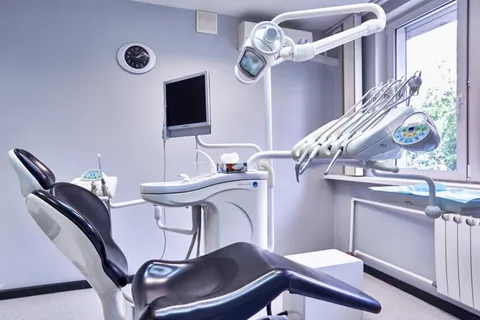Imagine a world where dental care comes to you. No more long waits in crowded waiting rooms or scheduling conflicts. Welcome to the rise of dentistry, a service that delivers professional dental care at your doorstep. With a simple call, patients can access quality oral health services without leaving the comfort of their homes or nursing facilities.
This innovative approach transforms how we think about dental visits, especially for those who may find travelling challenging due to age or health issues. Mobile dentists are convenient and tailored to meet diverse populations’ needs, making oral healthcare accessible like never before. Let’s dive into what this means for patients and how it’s reshaping the landscape of dentistry today!
Benefits of Dentistry Services
Dentistry services provide unparalleled convenience for patients of all ages. Instead of navigating busy schedules or transportation issues, individuals receive dental care right at their doorstep. This is especially beneficial for those with mobility challenges.
These services often significantly reduce wait times. Patients can enjoy timely appointments without the long lines typically associated with traditional practices. Another advantage is personalized care in a familiar environment. Home settings help alleviate anxiety, making visits more comfortable and effective.
Moreover, dentists frequently offer preventative care education tailored to individual needs. This proactive approach encourages better oral hygiene habits and overall health.
Dentistry ensures residents receive essential treatments for nursing homes and assisted living facilities without leaving their community. It’s an efficient way to manage oral health while minimizing disruption to daily routines.
How Dentistry Works?
Dentistry operates by bringing the dental office directly to patients, making care more accessible. Dental professionals travel in specially equipped vans or mobile units, fully stocked with the necessary tools and technology.
Appointments can be scheduled at homes, nursing facilities, or community centres. Patients receive comprehensive checkups without needing to navigate traditional waiting rooms.
After arriving onsite, dentists perform a variety of services. These include exams, cleanings, x-rays, and restorative procedures like fillings. The equipment used is often portable but sophisticated enough to ensure high-quality care.
The process emphasizes convenience for those with mobility challenges or time constraints. With an emphasis on personalized attention and comfort, dentistry caters specifically to patient needs in familiar environments.
Types of services offered by Nursing Home Dental
Nursing Home Dental services cater specifically to the unique needs of residents in long-term care facilities. They provide essential preventive care, including routine cleanings and checkups tailored for seniors.
Emergency dental services are also available, addressing urgent issues like toothaches or injuries at the facility. This ensures timely treatment without the hassle of transportation.
Restorative procedures are vital, too. Many nursing home dentists offer crowns, bridges that help restore function and aesthetics for those who have lost teeth. Additionally, education plays a key role. Staff training on oral hygiene practices helps maintain residents’ dental health consistently.
Specialized periodontal care is offered to manage gum disease effectively, reduce discomfort, and promote better overall health among elderly patients. These diverse services foster an environment where maintaining oral health becomes accessible and straightforward.
The Popularity of Preventative Dentists in Urban Areas
Preventative dentistry is gaining traction in urban areas, where busy lifestyles often lead to neglecting oral health. Residents increasingly recognize the importance of regular checkups and cleanings.
1. Oral Hygiene Education and Assessments: Nursing Dental services offer education and assessments to help residents maintain good oral hygiene. This includes teaching proper brushing and flossing techniques and identifying risk factors for dental diseases such as cavities and gum disease.
2. Routine Cleanings and Checkups: Regular dental cleanings are crucial for maintaining healthy teeth and gums. Home Dental services provide routine checkups to identify potential dental issues early on.
3. Denture Care: Many seniors in nursing homes wear dentures, which require regular cleaning and maintenance to prevent infection and decay. Nursing Home services specialize in denture care, including adjustments, repairs, and replacements.
4. X-rays are essential for diagnosing dental problems that may not be visible during a routine checkup. Home Dental services have portable X-ray equipment that can be brought directly to the facility, making it easier for residents to receive this necessary service.
5. Emergency Dental Care: In the event of a dental emergency, Home Dental services are equipped to provide immediate care at the facility. This includes treating toothaches, broken teeth, or other urgent dental issues.
Challenges and Solutions for Restorative Dentists
Restorative dentists face several challenges in effectively delivering care. One major hurdle is limited accessibility for patients, especially those with mobility issues or who live in rural areas. This can lead to delayed treatments and worsening conditions.
Another challenge is managing patient anxiety. Many fear dental procedures, which may hinder them from seeking necessary restorative work like fillings or crowns.
Dentistry services are stepping up to tackle these issues. By bringing care directly to patients’ homes or nursing facilities, they reduce travel barriers and make appointments less intimidating.
Additionally, incorporating sedation options helps ease anxiety during procedures. Education about treatment processes also fosters trust and comfort among patients.
Adopting advanced technologies plays a crucial role, too. Digital imaging allows for more accurate assessments without extensive chair time. These solutions aim to enhance both access and quality of restorative dental care.
The Future of Crowns and Bridges
The future of crowns and bridges is poised for remarkable advancements. Emerging technologies promise to enhance the materials and processes involved in their creation.
3D printing is revolutionizing the design and manufacturing of dental restorations. This innovation allows for custom-fit solutions that can be produced onsite, reducing wait times significantly.
Biomaterials are also making waves in dentistry. These advanced materials mimic natural tooth properties more closely than ever, resulting in better longevity and aesthetics.
Moreover, digital impressions will likely replace traditional moulds entirely. The precision offered by these methods ensures a comfortable patient experience while delivering superior results.
Tele-dentistry may further transform consultations, enabling specialists to assess conditions remotely before devising treatment plans tailored to individual needs.
Convenient and Accessible Dental Care for All
Accessing dental care has long been a challenge for many, especially those in remote areas or with mobility issues. dentists bridge this gap, bringing essential services right to the doorstep. Imagine receiving professional care without the stress of travelling. This convenience can significantly reduce anxiety for patients who dread traditional dental visits.
For families juggling busy schedules, dentistry offers flexibility that meets their needs. Appointments can be arranged conveniently, eliminating the hassle of coordinating childcare or taking time off work.
These services also benefit patients in nursing homes. Dentists enhance oral health by providing routine checkups and treatments onsite while fostering comfort in familiar surroundings.
The commitment to accessible dental care reshapes how communities think about oral hygiene. Everyone deserves quality treatment tailored to their lifestyle and circumstances.
Cost comparison with traditional dental care
Dentistry is often a more affordable option than traditional in-office visits. The savings can be significant when you factor in travel time and lost wages. Many dentist services offer transparent pricing models with no hidden fees. Patients appreciate knowing exactly what they’ll pay upfront without surprise costs lurking around the corner.
Additionally, dentists frequently cater to specific groups, such as seniors or those in nursing homes, ensuring that care is both accessible and budget-friendly. This tailored approach can reduce overall expenses for preventative care.
Traditional dental offices may have higher overhead costs due to location and staffing requirements. These expenses often get passed down to patients through elevated fees for routine checkups or treatments. With the convenience of at-home service, many find themselves saving not just money but also valuable time typically spent travelling for appointments.
Conclusion
Mobile dental services are reshaping the way we think about oral health care. They provide a flexible approach that literally and figuratively meets people where they are. The convenience of having skilled professionals come to your location cannot be overstated. It’s particularly beneficial for those in nursing homes or individuals with limited mobility. As awareness grows, so does the acceptance of mobile dentistry. Families appreciate its ease, while practitioners find fulfilment in reaching underserved populations. This method not only promotes preventative practices but also addresses restorative needs effectively.
FAQs
What is a mobile dentist?
A mobile dentist refers to dental professionals who provide care directly at the patient’s location, whether in their homes, nursing facilities, or other community sites. This model aims to make dental services accessible for those with mobility issues or tight schedules.
Are mobile dentistry services as effective as traditional practices?
Yes! Dentistry utilizes tools and techniques similar to those of conventional offices. Many are equipped with portable technology to perform examinations, cleanings, and even some restorative procedures onsite.
How do costs compare between traditional dental care and dentistry?
Costs of dental care can vary depending on the specific services provided; however, many find that dentists can offer competitive pricing compared to traditional clinics. Additionally, savings may come from reduced travel time and convenience factors.




